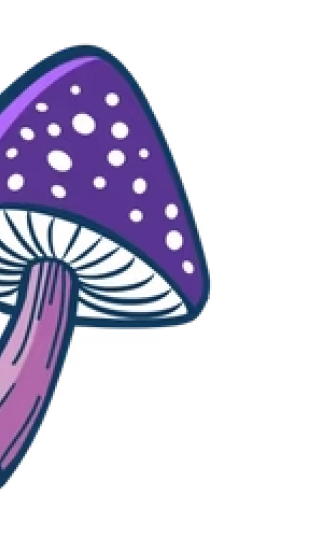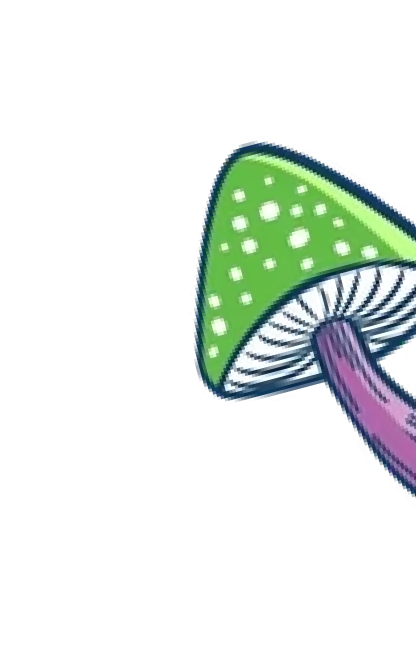The Reishi mushroom, also known as Ganoderma lucidum, is a medicinal fungus that has been revered for centuries for its numerous health benefits. While it has traditionally been used in Chinese medicine to strengthen the immune system and promote longevity, recent research has also highlighted its potential benefits for skin health. In this article, we will explore the various ways in which Reishi mushroom can benefit your skin and how you can incorporate it into your skincare routine.
Understanding the Reishi Mushroom
Before we delve into the specific benefits of Reishi mushroom for the skin, let's first understand this remarkable fungus. Reishi mushroom has a long history of use in traditional Chinese medicine, where it is often referred to as the "mushroom of immortality" or the "elixir of life." It has also been a staple in Japanese and Korean herbal medicine.
Reishi mushroom, scientifically known as Ganoderma lucidum, belongs to the Polyporaceae family and is renowned for its unique appearance and medicinal properties. Its cap is kidney-shaped and has a shiny, varnished appearance, while the underside features small, fine pores. This mushroom grows on hardwood trees and is typically harvested in the wild or cultivated for its various health benefits.
Origin and History of Reishi Mushroom
Reishi mushroom is native to parts of Asia, particularly China, Japan, and Korea. It has a long history of use in these regions, with written records dating back over 2,000 years. During ancient times, Reishi mushroom was reserved for royalty and nobility due to its rarity and high esteem.
Throughout history, Reishi mushroom has been revered for its potential to promote longevity, vitality, and overall well-being. Emperors in ancient China were said to consume Reishi mushroom regularly to enhance their health and extend their lifespan. Its association with royalty and immortality further solidified its status as a prized medicinal mushroom in traditional Asian cultures.
Nutritional Profile of Reishi Mushroom
Rich in bioactive compounds, Reishi mushroom offers a wide array of potential health benefits. It contains polysaccharides, triterpenes, and antioxidants, which contribute to its medicinal properties. These bioactive compounds have been studied extensively and are believed to be responsible for many of Reishi mushroom's effects on the body, including its potential benefits for the skin.
Studies have shown that Reishi mushroom possesses anti-inflammatory, antioxidant, and immunomodulatory properties, making it a valuable ingredient in skincare products. Its ability to promote collagen production, reduce oxidative stress, and protect against UV damage makes it a popular choice for those seeking natural solutions for skin health and rejuvenation.
The Connection Between Reishi Mushroom and Skin Health
Our skin is the largest organ of the body and plays a crucial role in protecting us from external factors. However, various factors such as aging, environmental pollutants, and lifestyle choices can take a toll on our skin, leading to issues such as premature aging, acne, and inflammation. This is where Reishi mushroom comes into play.
Reishi mushroom, scientifically known as Ganoderma lucidum, has been used for centuries in traditional Chinese medicine for its potential health benefits. It is often referred to as the "mushroom of immortality" due to its believed ability to promote longevity and overall well-being. In recent years, its popularity has surged in the Western world, particularly in the realm of skincare.
How Reishi Mushroom Affects Skin
Reishi mushroom contains compounds with antioxidant and anti-inflammatory properties, such as beta-glucans, triterpenes, and polysaccharides. These bioactive components can help protect the skin from oxidative stress caused by free radicals and reduce inflammation, making it beneficial for promoting overall skin health and combating various skin concerns.
Furthermore, Reishi mushroom is rich in vitamins, minerals, and amino acids that nourish the skin and support its natural regeneration process. By incorporating Reishi mushroom extracts or products infused with Reishi into your skincare routine, you may experience improved skin texture, increased hydration, and a more radiant complexion.
Scientific Research on Reishi Mushroom and Skin
Several scientific studies have explored the effects of Reishi mushroom on skin health. These studies have shown promising results, indicating that Reishi mushroom has the potential to enhance the skin's natural defenses, improve hydration, and reduce the appearance of aging signs. One study published in the Journal of Traditional and Complementary Medicine found that Reishi extract exhibited significant anti-inflammatory and antioxidant effects when applied topically, suggesting its potential as a natural remedy for various skin conditions.
While the preliminary findings are encouraging, further research is still needed to fully understand the mechanisms behind these effects and their practical implications in skincare formulations. The synergy between traditional wisdom and modern scientific inquiry continues to shed light on the remarkable benefits of Reishi mushroom for skin health, paving the way for innovative skincare solutions rooted in nature's wisdom.
Specific Skin Benefits of Reishi Mushroom
Anti-Aging Properties of Reishi Mushroom
One of the key benefits of Reishi mushroom for the skin is its anti-aging properties. The antioxidant compounds present in Reishi mushroom help combat free radicals, which can cause premature aging. By neutralizing these harmful molecules, Reishi mushroom can help reduce the appearance of wrinkles, fine lines, and age spots, giving you a more youthful complexion.
Furthermore, Reishi mushroom is rich in beta-glucans, polysaccharides that stimulate the production of collagen in the skin. Collagen is a protein that helps maintain skin elasticity and firmness, making it an essential component in anti-aging skincare. By promoting collagen synthesis, Reishi mushroom can help improve skin texture and reduce the sagging that comes with age.
Reishi Mushroom for Acne and Skin Inflammation
Acne and skin inflammation are common skin concerns that can be challenging to address. Reishi mushroom's anti-inflammatory properties make it a potential natural remedy for these issues. It can help reduce redness, swelling, and irritation associated with acne, providing relief to those with problematic skin.
In addition to its anti-inflammatory effects, Reishi mushroom contains antibacterial compounds that can help combat acne-causing bacteria. This dual action of reducing inflammation and fighting bacteria makes Reishi mushroom a versatile ingredient for managing acne and promoting clearer skin.
Reishi Mushroom and Skin Hydration
Proper hydration is essential for maintaining healthy skin. Reishi mushroom has been found to have moisturizing effects on the skin, helping improve its hydration levels. By keeping the skin well-hydrated, Reishi mushroom can contribute to a smoother, plumper complexion.
Moreover, the polysaccharides in Reishi mushroom form a protective barrier on the skin, preventing moisture loss and enhancing the skin's natural ability to retain water. This barrier function not only helps in maintaining optimal hydration levels but also shields the skin from environmental stressors that can lead to dryness and dullness.

How to Incorporate Reishi Mushroom into Your Skincare Routine
Reishi mushroom, also known as Ganoderma lucidum, is a powerful ingredient that has been used in traditional Chinese medicine for centuries due to its numerous health benefits. When it comes to skincare, Reishi mushroom is gaining popularity for its antioxidant and anti-inflammatory properties, which can help promote a healthy and radiant complexion.
Reishi Mushroom in Topical Skincare Products
Many skincare brands have recognized the potential benefits of Reishi mushroom and have incorporated it into their products. Look for serums, moisturizers, and masks that contain Reishi mushroom extract to reap its skin-nourishing benefits. Reishi mushroom extract is known for its ability to hydrate the skin, reduce inflammation, and protect against environmental stressors, making it a versatile ingredient for various skin types.
When choosing Reishi mushroom skincare products, it is essential to consider the concentration of the ingredient. Some products may contain a higher percentage of Reishi mushroom extract, while others may feature it as one of many components. To maximize the benefits, follow the manufacturer's instructions on how to incorporate these products into your skincare routine effectively.
Consuming Reishi Mushroom for Skin Health
In addition to topical application, consuming Reishi mushroom supplements or adding it to your diet can also support skin health. Reishi mushroom supplements are available in various forms, including capsules, powders, and teas. These supplements are believed to help boost the skin's natural defenses, improve overall skin tone, and combat signs of aging.
Before adding Reishi mushroom supplements to your daily regimen, it is crucial to consult with a healthcare professional or a registered dietitian. They can provide guidance on the appropriate dosage and ensure that it complements your existing skincare routine. By combining topical application with internal consumption, you can harness the full potential of Reishi mushroom for glowing, healthy skin.
Potential Side Effects and Precautions
Possible Risks of Using Reishi Mushroom
While Reishi mushroom is generally considered safe for most individuals, some people may experience mild side effects such as an upset stomach or skin irritation. If you experience any adverse reactions, discontinue use and consult a healthcare professional. Additionally, Reishi mushroom may interact with certain medications, so it's important to inform your healthcare provider if you are taking any medications.
It's worth noting that some individuals may also experience dryness of the mouth, throat, and nasal passages when consuming Reishi mushroom. This is typically mild and temporary, but if you find these symptoms bothersome, reducing the dosage or frequency of consumption may help alleviate them.
Who Should Avoid Reishi Mushroom
Although Reishi mushroom is generally well-tolerated, there are certain groups of individuals who should exercise caution or avoid its use. These include pregnant or breastfeeding women, individuals with bleeding disorders, and those who are allergic to mushrooms. If you fall into any of these categories, it is advisable to consult a healthcare professional before using Reishi mushroom.
In addition to the groups mentioned above, individuals who are scheduled for surgery should also be cautious when using Reishi mushroom, as it may have effects on blood clotting and immune function. It is recommended to stop using Reishi mushroom at least two weeks before a scheduled surgery to prevent any potential complications during the procedure.
Conclusion
In conclusion, Reishi mushroom offers numerous benefits for skin health. From its antioxidant and anti-inflammatory properties to its moisturizing effects, Reishi mushroom can enhance your skin's natural beauty. Whether you choose to incorporate it into your skincare routine through topical products or by consuming it internally like with the Daily Gummies by Melting Forest, it can be a valuable addition to your quest for healthy, radiant skin. However, it is important to exercise caution, be aware of potential side effects, and consult with a healthcare professional before using Reishi mushroom. With the right approach and proper care, Reishi mushroom can be a powerful ally in your journey towards beautiful skin.



















